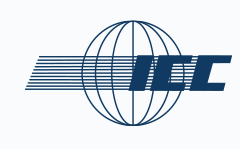Addresses of All Authors
Joseph Francis and Matthew Ingle, The Master's University 21726 Placerita Santa Clarita, California 91321
Todd Wood, Core Academy of Science P.O. Box 1076, Dayton, TN 37321
Author's Biography
Joseph Francis is a professor of biology at the Master’s University and assistant professor of general studies at Liberty University. His research interests and publications are in the areas of general biology, invertebrate biology, microbiology, immunology, biology teaching, and bioethics. He currently serves as the dean of the school of science, mathematics, technology and health at the Master’s University. He also serves as a board member of the Creation Biology Society.
Matthew Ingle is an Associate Professor at The Master’s University in Santa Clarita, CA. He teaches courses in several areas of biology, and researches the interaction between parasites and hosts. Matthew has published two papers on parasite origins in Answers Research Journal, and has published in the International Journal of Parasitology.
Todd Charles Wood is the president of Core Academy of Science. He holds a Ph.D. in biochemistry and has done postdoctoral work in genomics. His research interests include created kinds and comparative biology.
Proposal
Much of the research on viruses has concentrated on their disease causing ability. The creation model biomatrix theory predicts that viruses play a beneficial role in cells and organisms. In this report we present a new theory which proposes that mammalian phages (bacteriophages), the most abundant organism associated with mammals, guard and regulate growth of the mammalian microbiome. We base this theory on nearly a century of published evidence that demonstrates that phage can insert into the bacterial genome and cover the surface of bacteria. We propose that this “cloaking” of the bacterial cell surface is an elegant mechanism whereby the normal flora bacteria are protected from immune detection and pathogenic bacteria can be directly lysed by the same phage. Additionally, both phage genome integration and cloaking can be used to prevent normal flora bacteria from conversion to a pathogenic state. Further support for the phage cloaking aspect of our theory has been demonstrated in recent studies which show that phage proteins bind specifically to microbial-associated molecular patterns (MAMPs), which are known to be the major ligands that activate the mammalian immune system. Although these phenomena have been documented separately over decades, we postulate for the first time that these functions work together to promote the integrity of the mammalian microbiome.
Disciplines
Bacteriology | Virology
Keywords
Virus, bacteriophage, virome, microbiome, biomatrix, bacteriome, phage
DOI
https://doi.org/10.15385/jpicc.2018.8.1.16
Print Reference
Pages 152-157
Copyright
© 2018 Joseph Francis, Matthew Ingle, and Todd Charles Wood. All rights reserved.
Disclaimer
The CedarCommons repository provides a publication platform for fully open access journals, which means that all articles are available on the Internet to all users immediately upon publication. However, the opinions and sentiments expressed by the authors of articles published in our journals do not necessarily indicate the endorsement or reflect the views of Digital Services, the Centennial Library, or Cedarville University and its employees. The authors are solely responsible for the content of their work. Please address questions to the Digital Services staff.
Recommended Citation
Francis, J.W., M. Ingle, and T.C. Wood. 2018. Bacteriophages as beneficial regulators of the mammalian microbiome. In Proceedings of the Eighth International Conference on Creationism, ed. J.H. Whitmore, pp. 152–157. Pittsburgh, Pennsylvania: Creation Science Fellowship.
Audio
Francis_Bacteriophage.pdf (1088 kB)
PowerPoint

